In mid-November, I visited potato farmers in the Jos plateau which is known to produce over 90 percent of all potato in Nigeria. Though the purpose of the visit was to conduct grass roots activity to support the communications and advocacy work for the Feed the Future Global Biotech Potato Partnership in the country, the cultural dynamism between Kenya and Nigeria was so pronounced as the two countries share lots of common practices, beliefs, and the way we prepare and serve certain foods!
During the five-day exercise, I visited and had quality time with potato farmers, traders, middlemen, brokers, and consumers from the Kuru Dankarang and Anguldi Zawan District both in Jos South local government, Rahol-Gassa Ropp District in Barkin-Ladi local government, Kunet-Barah Butura District and two more groups from Bokkos Local Government, Plateau state.
While working with farmers right in their villages, I was amazed by how humble, approachable, warm, welcoming, and generous they are.
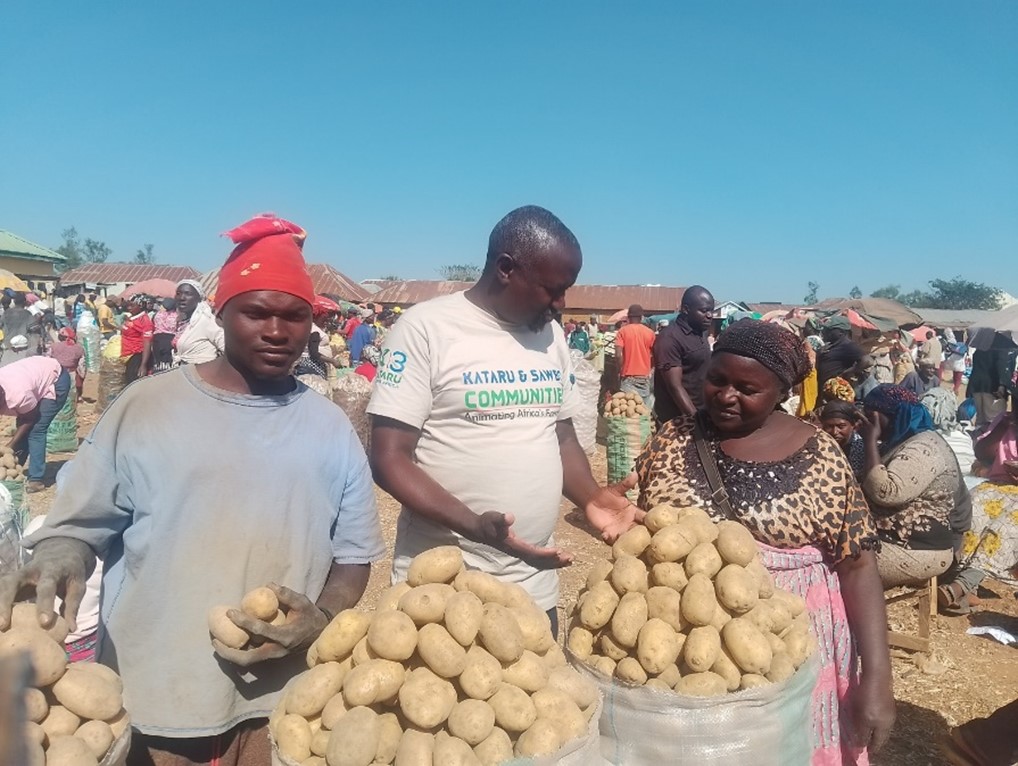
Right: Mrs. Joan Chollom Ladi, a potato broker at the local potato market. Unlike Kenya, potato consumers in Nigeria don’t dictate what varieties farmers plant since they just buy what is available on the market. However, different varieties fetch different prices.
Bleak future for potato farming due to late blight disease
Just like in Kenya where regions known for potato production since independence have abandoned the crop, potato farmers in Nigeria face the same challenge. According to Mr. Bitrus Davou Gyang from Rahol-Gassa Ropp District Barkin-Ladi local government, Plateau State, the most prevalent potato farming challenge in Nigeria is the late blight disease. “Farmers are forced to start spraying their crop the moment it breaks the ground to start germinating, otherwise they risk immeasurable crop loss if they delay to spray,” asserts the farmer whose been growing potatoes for the last thirty years.
Potato gangs, brokers and middlemen
The second challenge facing the Plateau region potato farmers is poor pricing dictated by “potato gangs,” brokers and middlemen which is similar in Kenya. Most of these “profiteers” make a fortune from the farmers sweat without flitching. At times, farmers are forced to offload their produce at very low prices so that the potato doesn’t rot from their stores.
Poor packaging that leaves farmers with loses
When the competition for market is high from a bumper harvest, potato farmers incur losses from poor packaging in which a 50 kg bag is extended by ropes to carry an extra 20 kilos. The brokers get about 70 kgs for the price of 50! “This is demoralizing,” asserts Mrs. Joan Chollom Ladi, a potato farmer and trader at the largest open air potato market in the country.
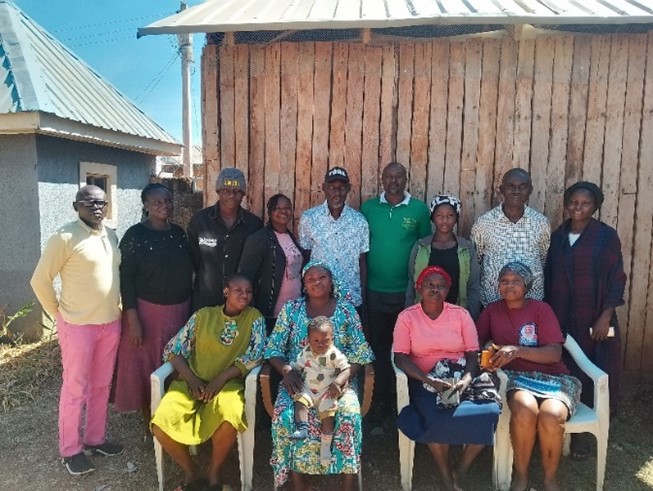
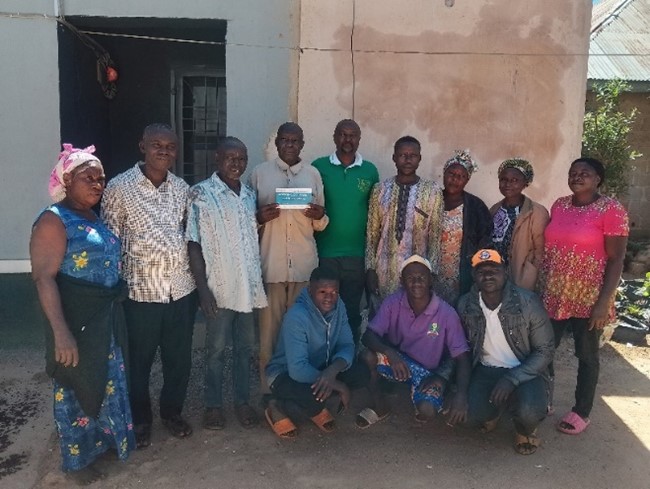
Left: The first group of participants from Kuru Dankarang community in Jos South local government, Plateau State. The group comprised of farmers, potato traders, and processors who sell on the local market. Right: The second group of small scale farmers, traders and processors (who cook potato in different forms and sell to locals) from the Anguldi community of Zawan District, Jos South, Plateau State.
Less vigorous activism
Surprisingly, the Nigerian anti GMO activism seems less vigorous and noisy compared to their Kenyan counterparts. A farmer opined that its because the government always have their say and way because of the level of trust and submission attached to matters of national interest such as the implementation of biotechnology.
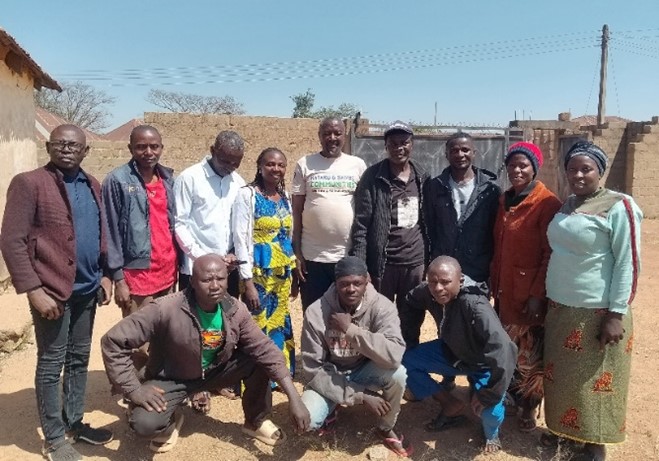
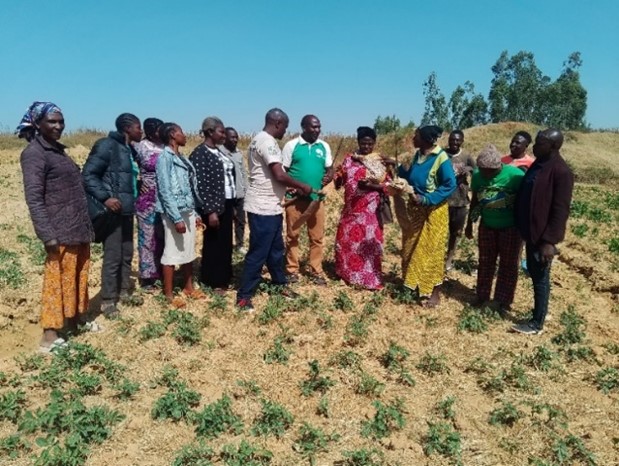
The third and fourth groups of potato farmers and traders from Rahol-Gassa Ropp District Barkin-Ladi local government, Plateau State. Left: a visit to one of the farmers plot of potato grown under irrigation.
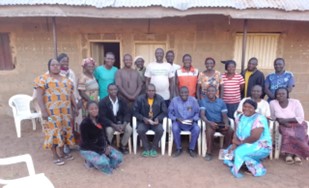
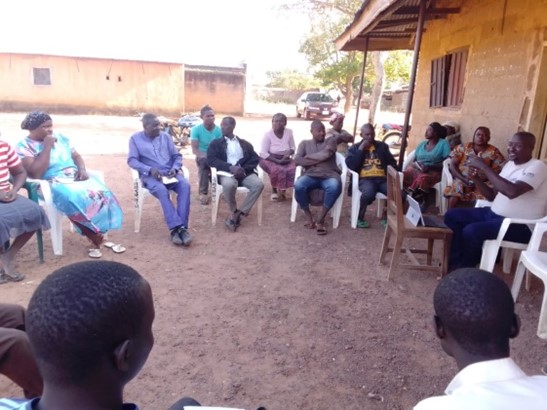
The fifth and sixth group of farmers from Kunet-Barah Butura District, Bokkos Local Government, Plateau state which we combined in our last meeting. The group brought together farmers, traders, and a middleman from the community.
Action plan
To increase the level of communication and sharing of information on potato farming and other activities, the communities have adopted the use of social media platforms especially WhatsApp.As much as villages suffer from poor internet connectivity and fewer smartphones in a given community, the enthusiasm in sharing information is encouraging.
We are going to increase interaction on the African groups and networks and encourage members to share their experiences as they learn from each other and grow. We are going to have more online training sessions and dissemination of vital knowledge in local languages from the SAWBO video library of good agricultural practices as we push for the adoption of these technologies by farmers as we walk towards a future that guarantees food security.
